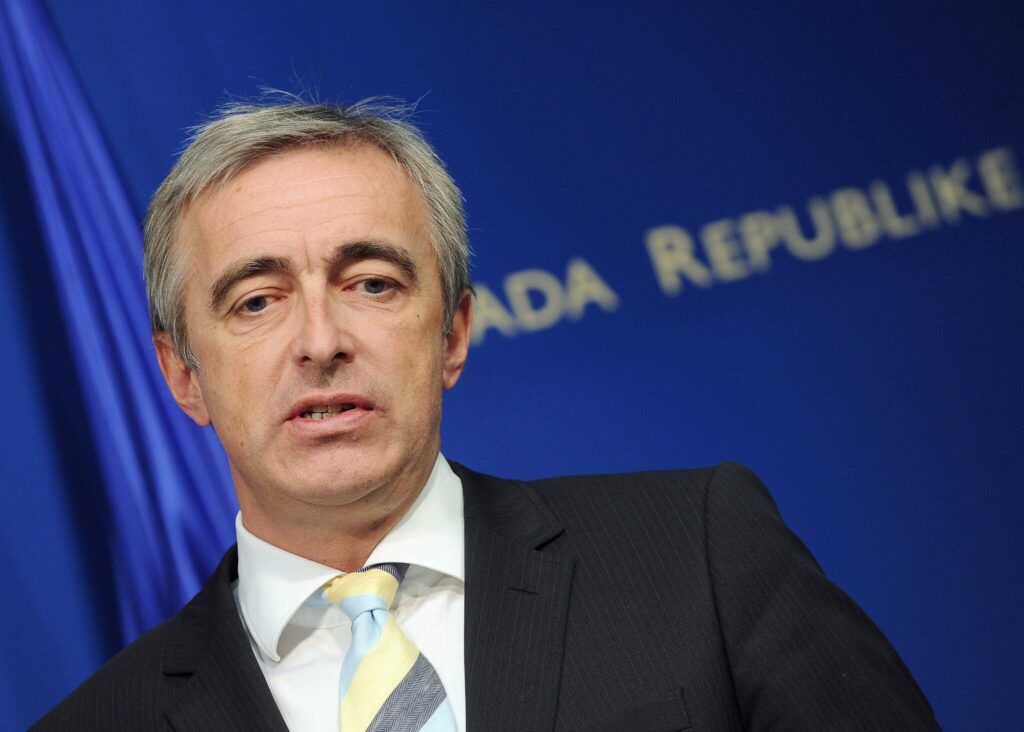Anyone who follows the coverage of the mainstream media can quickly realise that they are trying to convince us in every possible way that the saga related to the Slovenian Press Agency, foreign media coverage and the appointment of European Delegated Prosecutors are currently the most important topics in the country. While some, including the State Prosecutor General Drago Šketa, are madly worried about the appointment of the Delegated Prosecutors, saying that the country will be left without European prosecutorial control over the usage of the European budget funds, they obviously do not care about cases like the one in which the Mayor of Ljubljana, Zoran Janković, as well as the President of the Alenka Bratušek Party Council, Roman Jakič, and others who were involved, are not being tried for corruption and misuse of European money in the Stožice case. There was also no such uproar when certain Justice Ministers were changing the staff in all possible institutions with an almost brutal intensity.
While the public television, which is funded by all Slovenian taxpayers, is also trying to create a general belief about how worrying the situation in Slovenia should supposedly be after the government annulled the process of selecting two European Delegated Prosecutors, we need to be aware of all the facts. Namely, Slovenia is far from being the only country that has still not chosen the Delegated Prosecutors. Namely, there are doubts about the correctness of the process of their selection and doubts related to the possible contamination of the candidates. In Finland, where the appointment has also not yet been completed, there is no undue concern. However, there are also certain countries, such as Sweden, which are participating in the European prosecutor’s project at all.
In mid-2011, the National Assembly of the Republic of Slovenia discussed the State Prosecution Service Act, which provided for eleven prosecutors’ offices to retain the same heads with the same tasks, while the twelfth Prosecutor’s Office, previously called the Group of State Prosecutors for the Prosecution of Organised Crime, was renamed the Specialised State Prosecutor’s Office. “This was the only prosecutor’s office for which it was foreseen that re-registration would be required for the head of the prosecutor’s office in question,” said Vinko Gorenak, adding that at the time when the law was adopted, he had already warned that it was clear that the only reason for this was that Aleš Zalar, who was the Minister at the time, wanted to get rid of Blanka Žgajnar, which Zalar denied. Gorenak also reminded everyone that the deadlines for the adoption of implementing regulations, provided for the implementation of all these personnel procedures, still only covered a six-month period in July 2011. “But when we came to the third reading of the law, which was when the government was already dealing with current affairs, Minister Zalar realised that his time was running out, and he quickly changed the transitional provisions into a three-month period,” Gorenak explained.
In light of the them-procedure for the appointment of the head of the Specialised State Prosecutor’s Office, to which Blanka Žgajnar and Harij Furlan applied, Gorenak told Zalar that it was more than obvious that he was in a hurry to appoint someone from his own ranks, even though in this case, it was a statutory instructional period, which has no consequences when prolonged. “He did not appoint the directors of the courts in time either, but nothing happened, and in this case, he was in a hurry because he wanted to appoint his own man to that position,” Gorenak said, adding that Zalar was acting illegally, as these were not actually current affairs. To make it easier to understand the situation, he reminded everyone of the events of 2008, when the director of the police, Jože romšek, retired and Minister of the Interior, Dragutin Mate, who was also only supposed to be dealing with current affairs at the time, announced a public tender for a new director of the police. He did not make the selection himself but handed over a folder with all the applications to his successor, Katarina Kresal, when the business was handed over so that she could continue with the process. “This time, things are different, as Minister Zalar is illegally using the position of only dealing with current affairs to recruit at his own will,” Gorenak was critical at the time.
The Škrlec case was one of the most high-profile personnel cases
Before the adoption of the State Prosecution Service Act, there was a post of “Secretary-General of the Supreme State Prosecutor’s Office,” which was an official function. The then-State Secretary Boštjan Škrlec, who was also the co-author of the new State Prosecution Service Act, created a new job post, namely “Director-General of the Supreme State Prosecutor’s Office.” “And who will become the new Director-General of the Supreme State Prosecutor’s Office, as the law says? Proceedings are ongoing for Mr. Škrlec. He went to an operational executive position, and Mr. Škrlec created a job for himself within the law, and then a procedure will be initiated for him to fill that position. That is not correct, and it is not fair, it is illegal, and it does not belong to current affairs,” Gorenak pointed out at the time. In the end, it all came true. Namely, in 2013, the State Prosecutorial Council assigned Škrlec to the position of Director-General of the Supreme State Prosecutor’s Office for a period of three years.
It is interesting how today, some people seem to have “forgotten” about the old sins of certain left-wing individuals. However, it would be appropriate, at least on public television, where there are plenty of employees if they made sure that they select guests for their shows who are suitable for moralising on a certain topic. And not people like Zalar. Apparently, the public television and the rest of the mainstream media mainly want to promote people who are against Janez Janša.
Sara Kovač


